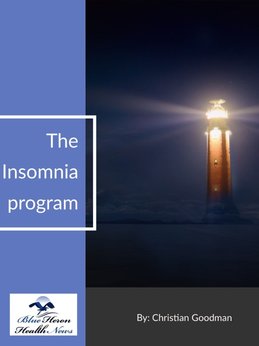
The Insomnia Program™ By Christian Goodman This program has been created by Christian Goodman, a natural health expert and sufferer of insomnia. He has used an audio program to let your fall sleep with the help of a bit of a hypnotic effect on your body.
How does alcohol affect sleep quality?
Alcohol can significantly affect sleep quality, disrupting both the quantity and the restorative nature of sleep. Here’s how alcohol impacts sleep:
1. Initial Sedative Effects
- Sleep Onset: Initially, alcohol can have sedative effects, making it easier to fall asleep. This is because alcohol enhances the effects of gamma-aminobutyric acid (GABA), a neurotransmitter that promotes relaxation and sleep. As a result, many people feel drowsy and fall asleep more quickly after consuming alcohol (FIU News) (Labiotech.eu).
2. Disruption of Sleep Stages
- Reduced REM Sleep: Alcohol consumption, especially in large amounts, reduces the time spent in Rapid Eye Movement (REM) sleep, which is a critical phase for emotional regulation, memory consolidation, and overall cognitive function. This reduction in REM sleep leads to less restorative sleep and can cause people to wake up feeling unrefreshed (Med Xpress) (FIU News).
- Fragmented Sleep: After the initial sedative effects wear off, alcohol can cause more frequent awakenings during the night, leading to fragmented sleep. This disruption is partly due to alcohol’s metabolization, which can cause fluctuations in blood sugar levels and dehydration, prompting nighttime awakenings (Labiotech.eu).
3. Sleep Apnea and Breathing Issues
- Exacerbation of Sleep Apnea: Alcohol relaxes the muscles in the throat, which can exacerbate or trigger sleep apnea—a condition where breathing repeatedly stops and starts during sleep. This leads to interruptions in sleep and reduced oxygen levels in the blood, contributing to poor sleep quality and daytime fatigue (Med Xpress) (FIU News).
- Snoring: Alcohol consumption can increase the likelihood of snoring due to muscle relaxation in the airways, which can disturb both the drinker’s sleep and that of a bed partner (Labiotech.eu).
4. Impact on Circadian Rhythm
- Disruption of Sleep-Wake Cycle: Alcohol can interfere with the body’s circadian rhythm, or internal clock, which regulates sleep-wake cycles. This disruption can lead to difficulty falling asleep, staying asleep, and waking up at the appropriate time (FIU News).
- Delayed Sleep Onset: Although alcohol might initially help with sleep onset, it often leads to a rebound effect later in the night, where sleep becomes lighter and more disrupted, especially in the second half of the night (Labiotech.eu).
5. Next-Day Effects
- Daytime Fatigue and Impairment: The disruptions in sleep caused by alcohol often result in poor sleep quality, leading to daytime fatigue, irritability, and cognitive impairment. The lack of restorative sleep can also contribute to poor concentration, memory issues, and reduced productivity during the day (Med Xpress) (FIU News).
6. Long-Term Effects
- Chronic Sleep Problems: Regular alcohol consumption, especially in large amounts, can lead to chronic sleep disturbances and an increased risk of developing sleep disorders such as insomnia and sleep apnea. Over time, this can have a cumulative effect on overall health, contributing to cardiovascular issues, mental health problems, and reduced immune function (Labiotech.eu) (Med Xpress).
Conclusion
While alcohol might initially seem to aid sleep, its overall effect is detrimental to sleep quality. It disrupts sleep architecture by reducing REM sleep, fragmenting sleep throughout the night, and exacerbating conditions like sleep apnea. Over time, these effects can lead to chronic sleep problems and broader health issues. To improve sleep quality, it is advisable to limit alcohol consumption, especially in the hours leading up to bedtime.

The Insomnia Program™ By Christian Goodman This program has been created by Christian Goodman, a natural health expert and sufferer of insomnia. He has used an audio program to let your fall sleep with the help of a bit of a hypnotic effect on your body.